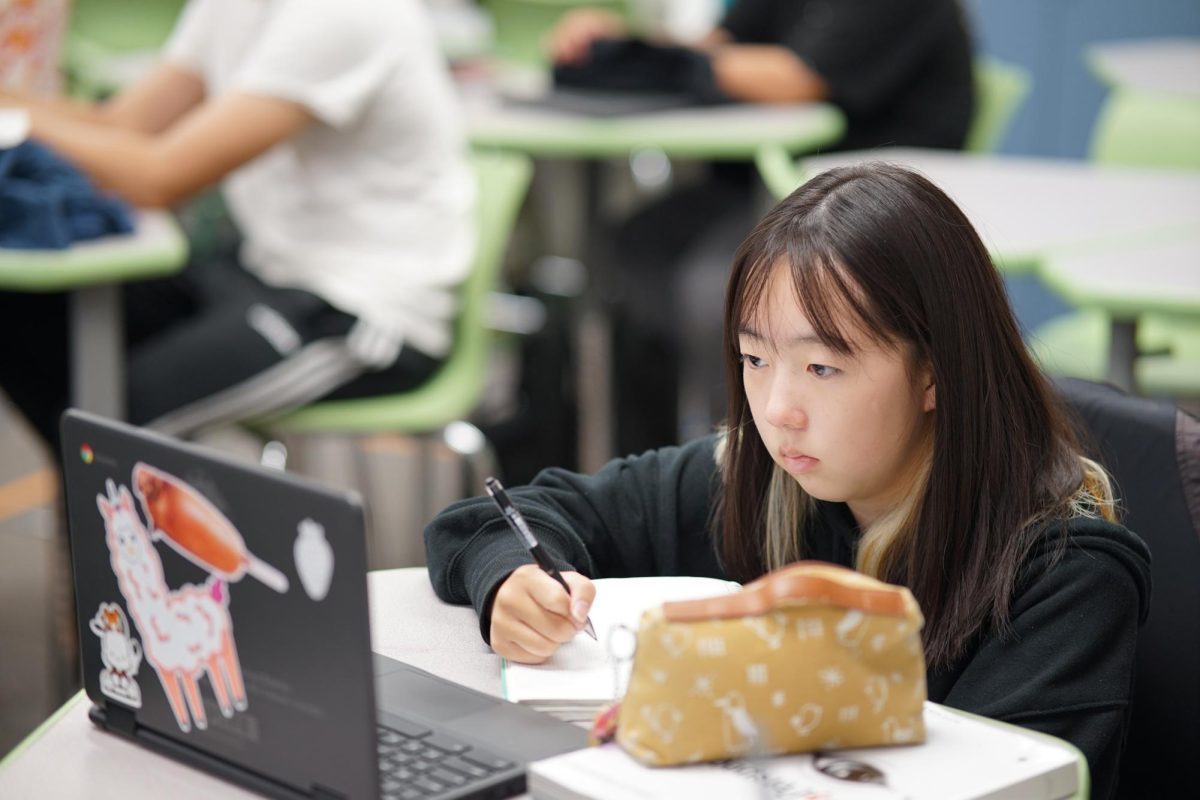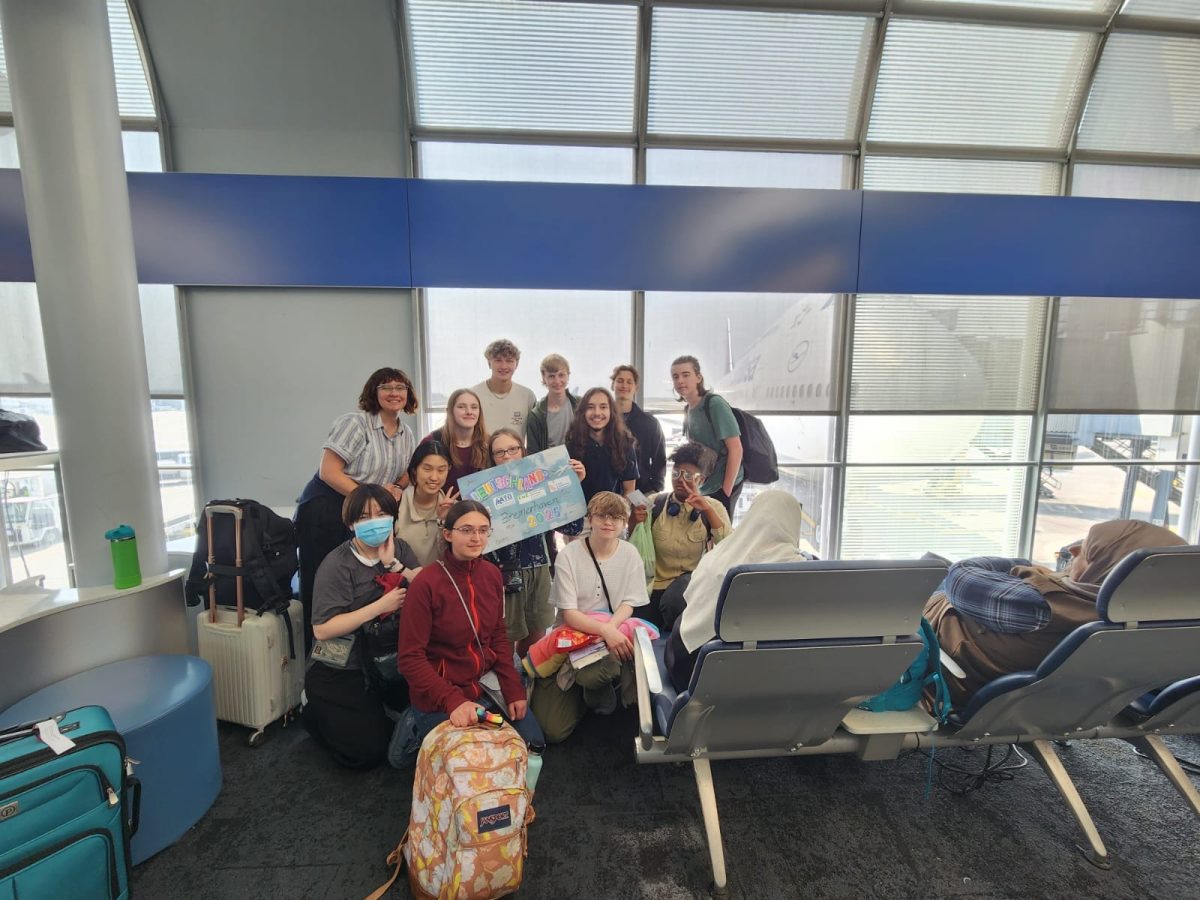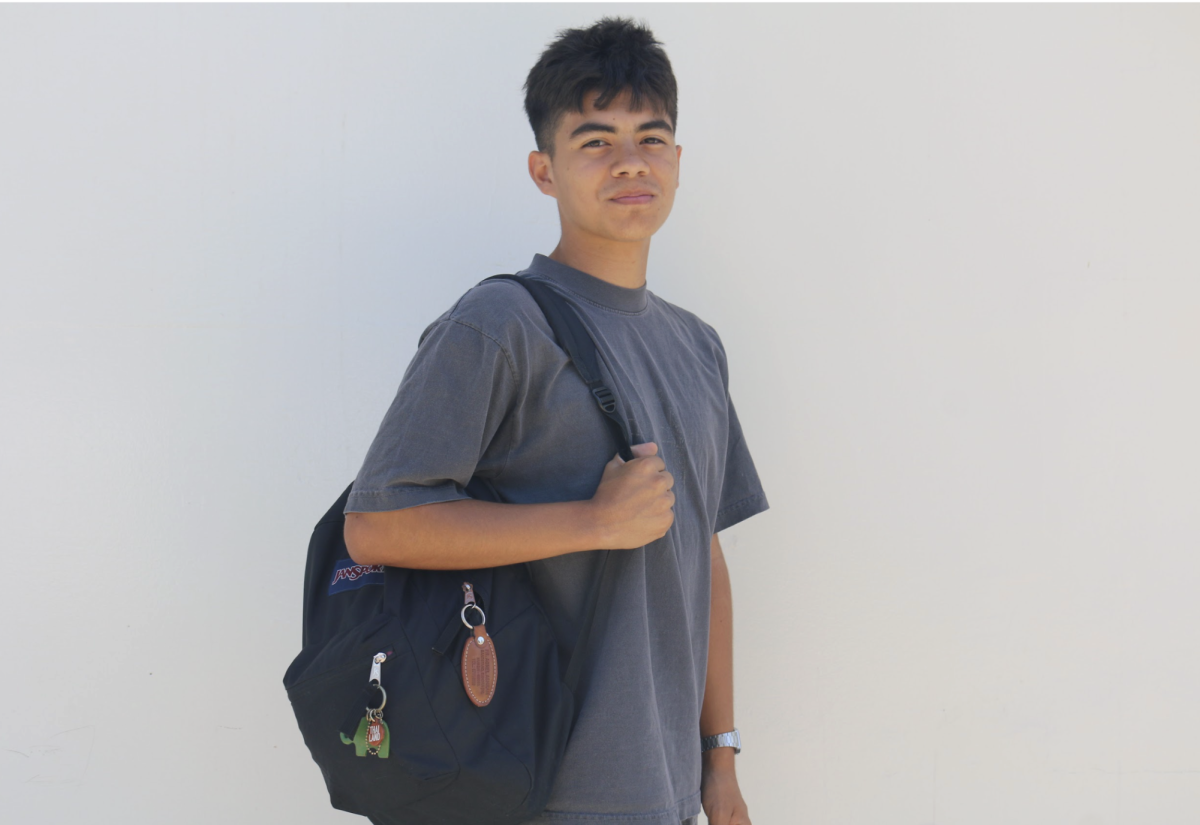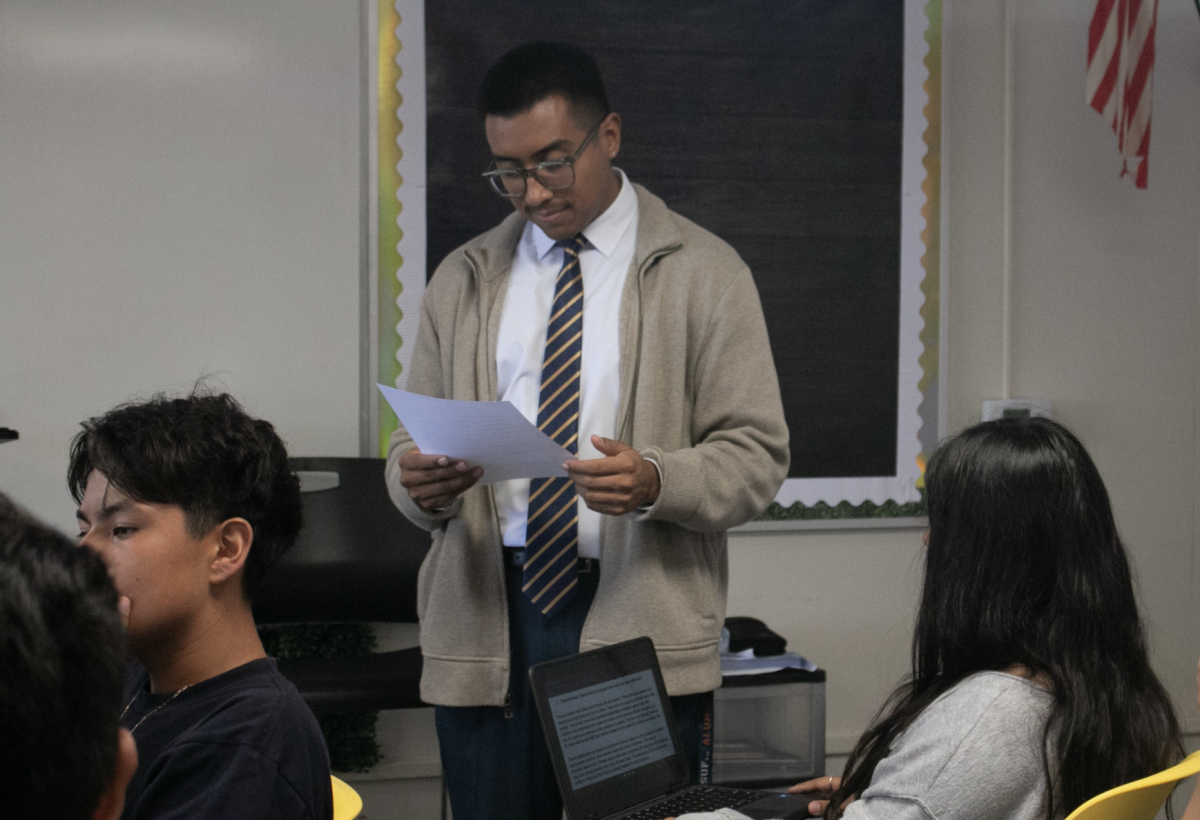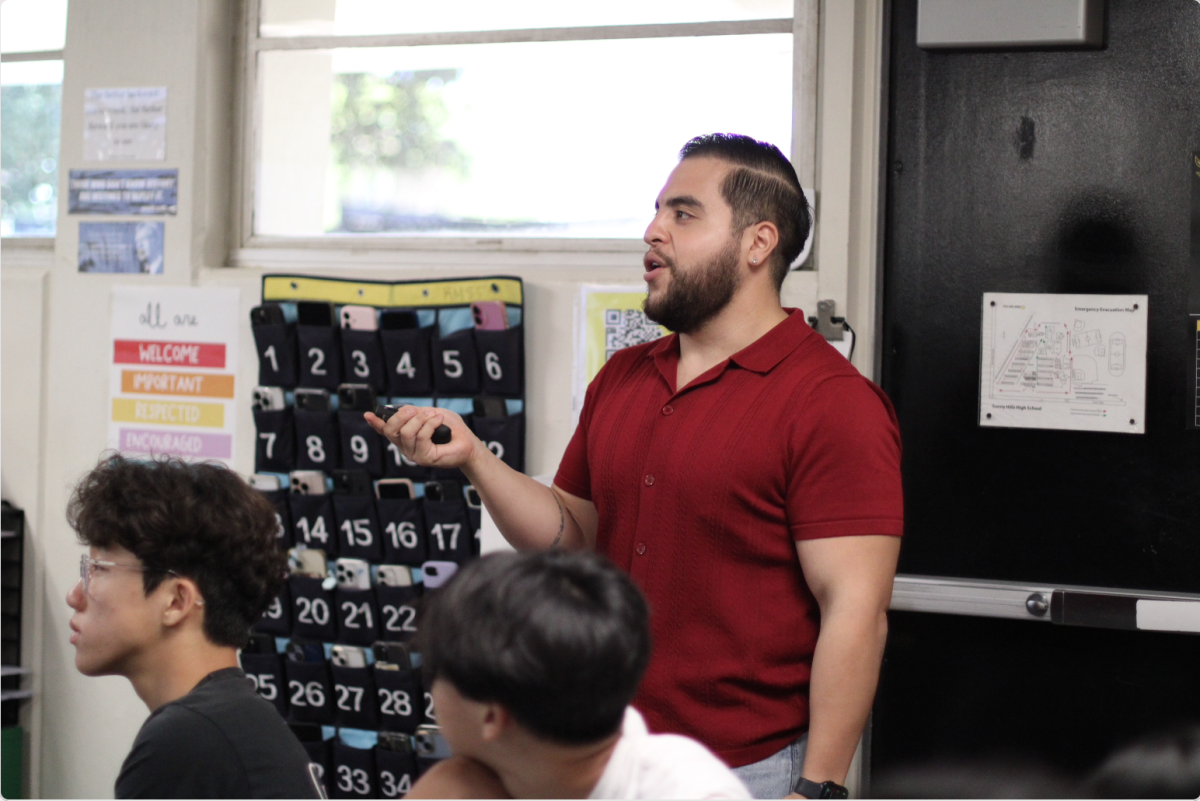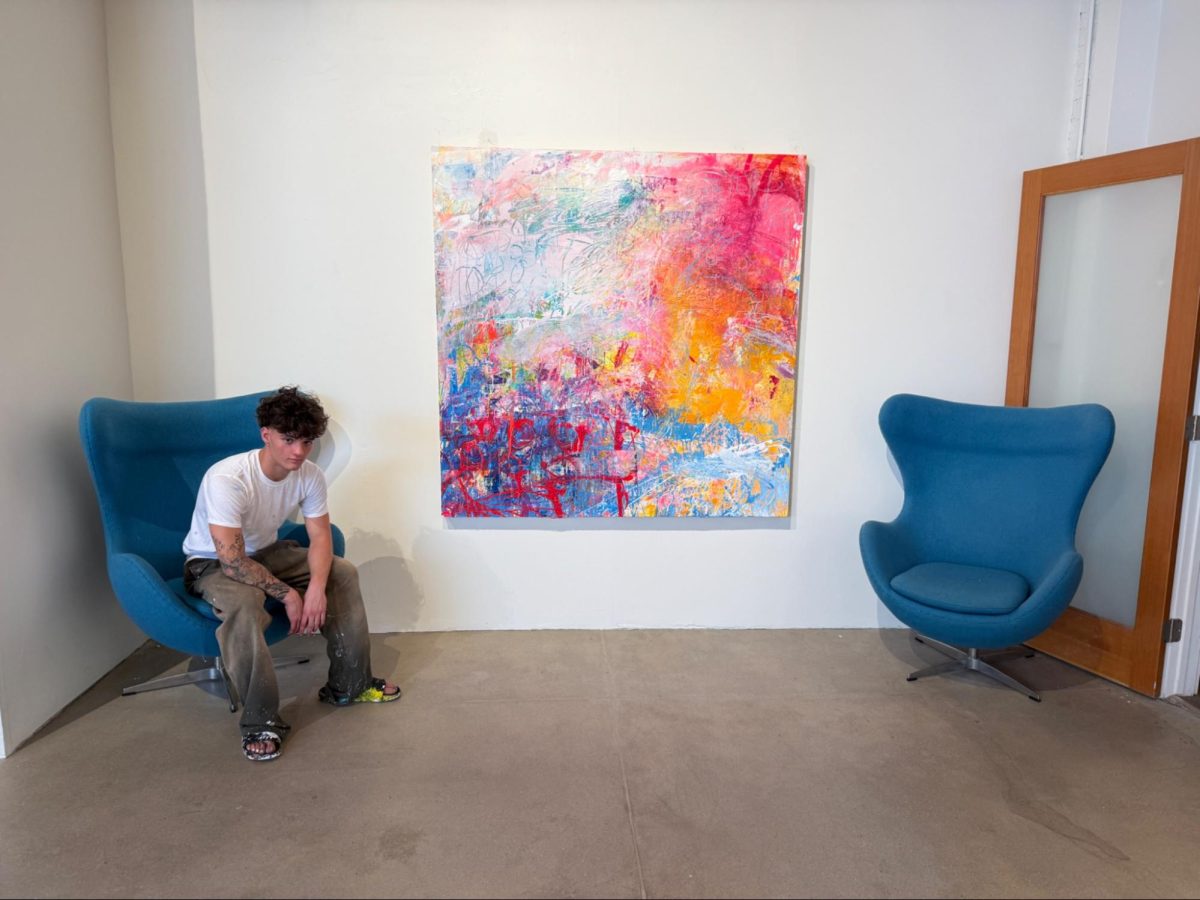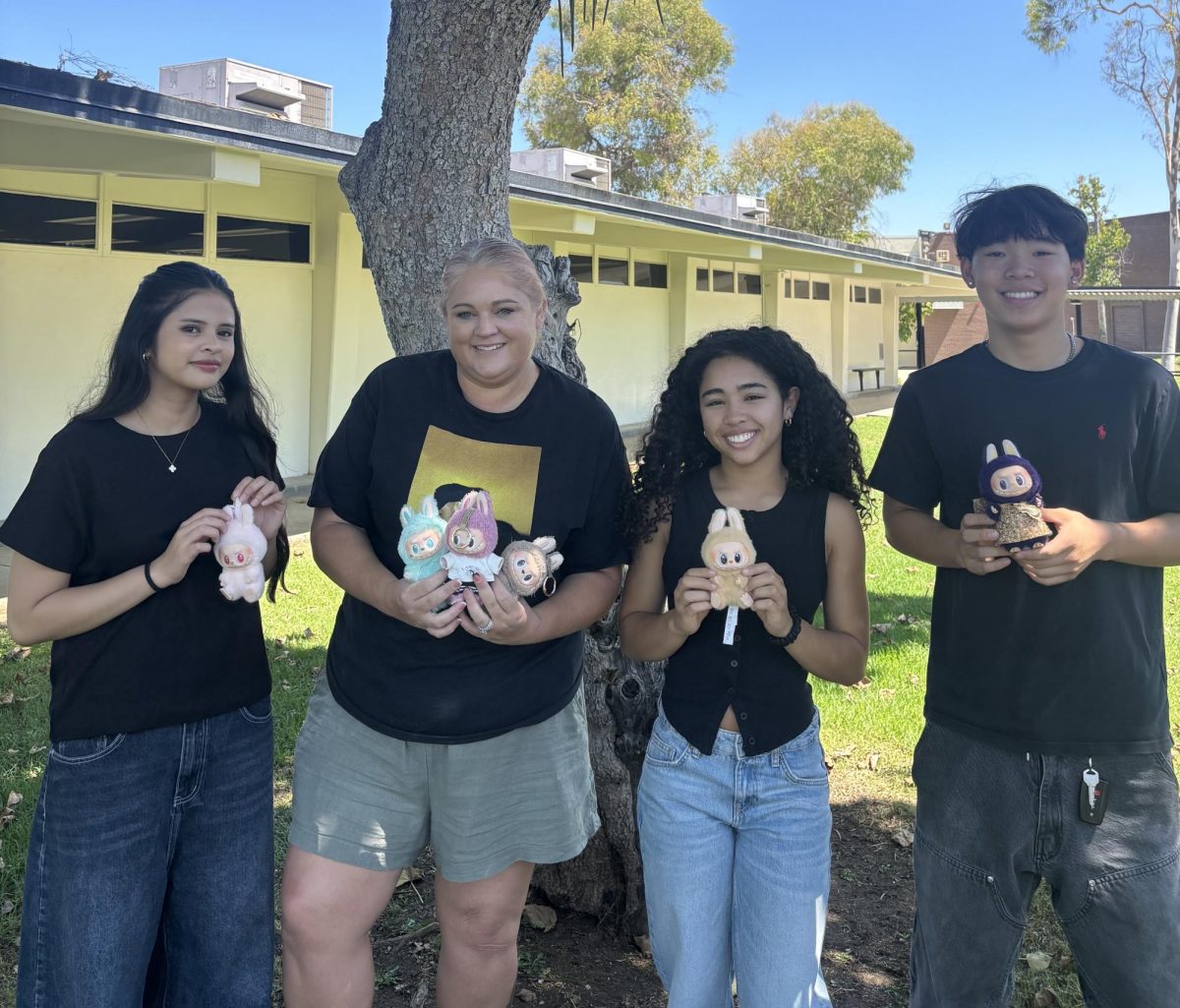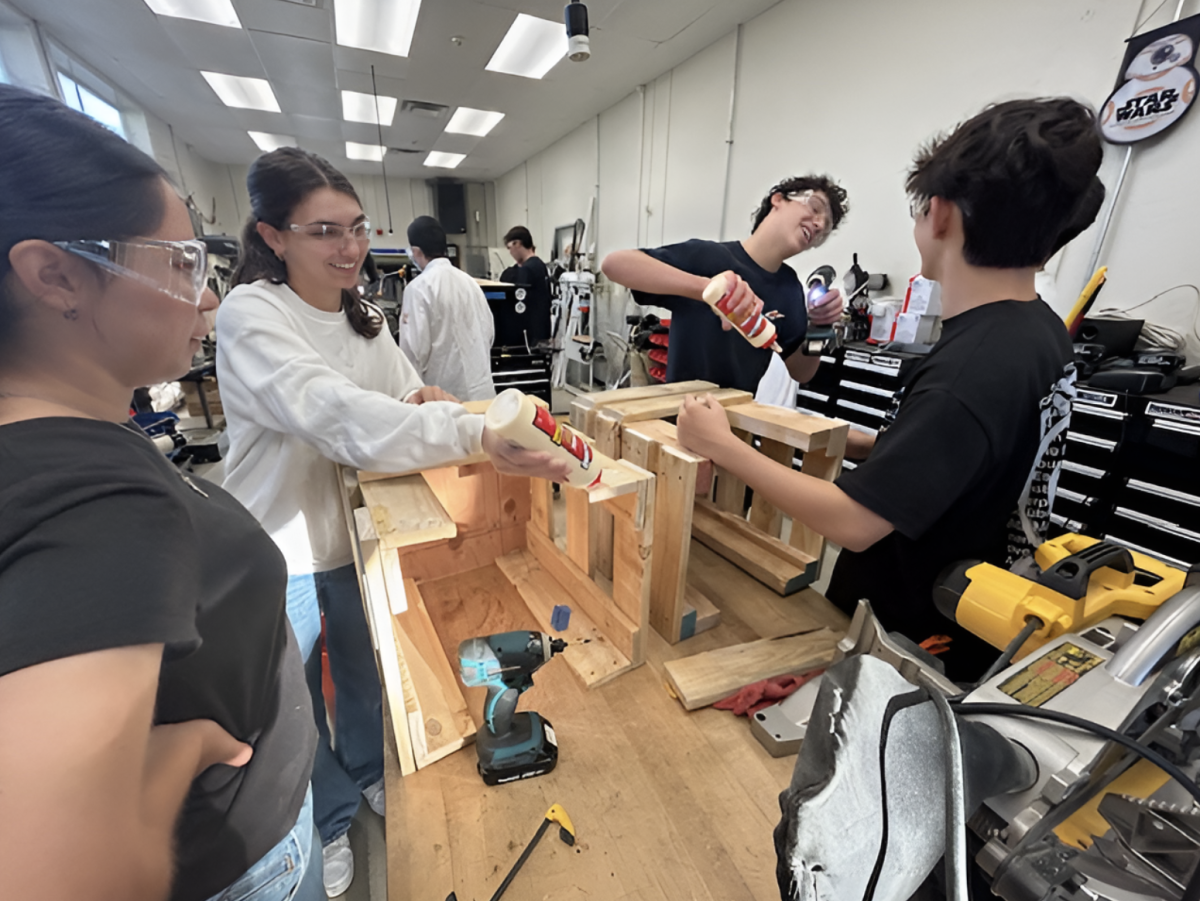A memorable color that sticks after meeting Won is red — not because that’s the color of her electric wheelchair, rather through her personality.
“I like red because it looks clean, bold and straightforward,” Won said. “That’s why I chose red for my wheelchair’s color because that’s how I feel about myself and my wheelchair.”
She has relied on the same wheelchair since second grade because she has muscular myopathy, a condition that weakens the muscles from birth.
The sophomore said it was around the time she was 2 years old when her mom realized her movements were more restricted than those at her age.
“My mom said that she noticed how I didn’t have as much movement as a newborn child,” Won said. “Infants struggle usually getting around — I just kind of didn’t.”
As she got older, her muscles could not support her body weight, making walking difficult.
“I had to be in a stroller before, so I was actually glad when I got the wheelchair because it was more comfortable,” Won said.
As she begins her second year of high school, she said part of school recognition is about valuing students’ needs in diverse circumstances — in her case, physical accessibility.
“My voice being heard is important,” Won said. “I hope that people who have physical disabilities like me in the future can have a safer, more inclusive and convenient four years at Sunny Hills.”
SELF-ADVOCACY
According to the Center for Disease Control and Prevention, 1 in 7 adults in the U.S. has a movement-related disability, making mobility impairments the most common form of conditions.
Being the only wheelchair user at Sunny Hills has made it difficult for Won to make friends freshman year because finding people with shared experiences is rare.
“I had 20 plus absences in one semester [last year] because of doctor appointments, so there’s the fact that I’m physically not at school,” she said. “I’ve also felt that people can find it difficult to approach me, which makes it hard for me to reach out, too.”
However, Won said certain events have led to valuable friendships, such as one with sophomore Jessica Yu. The two first met in eighth grade at Robert C. Fisler School in Fullerton in science class.
Yu said she enjoys Faith’s humor the most.
“Faith is really vocal, funny and knows how to make a discussion flow,” Yu said. “As we got closer, I did have conversations about her disability because I thought it was important that I understand and not make guesses.”
Instead of trying to shy away from the attention she may get because of her condition, Won said she’s grown to ignore occasional stares or glances from students and speak to those who may treat her differently.
“Many people don’t understand my ability and make assumptions based on my appearance,” she said. “I will always advocate for myself, but I never felt that I have to go out of my way to explain my condition.”
Junior Lucas Saab, who relied on crutches during his freshman year because of an ankle sprain, said he agrees that conversations surrounding physical disabilities are still an avoided subject, though the campus was accessible from his experience.
“The taboo of speaking about disabilities is no different than outside of school,” Saab said. “I think most see disabilities from a sympathetic viewpoint. Everyone is somewhat scared to talk about disabilities because they don’t want to offend anyone.”
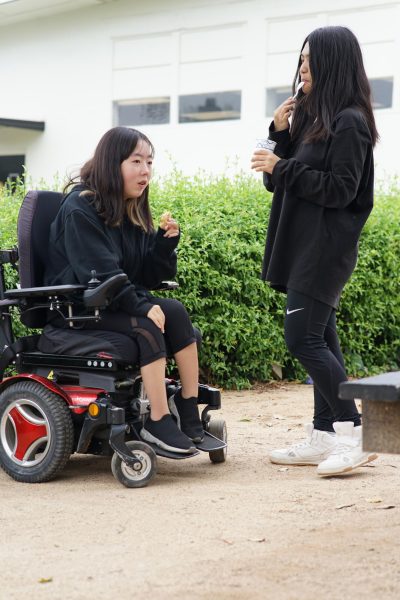
Won said she may consider building a community on campus to support better inclusion and education on disabilities.
“If I could initiate something like that, that would be great,” she said. “Some people think that it’s an obligation as a disabled person to become friends with another disabled person, but it isn’t.”
Won’s older sister, Janice, a senior at Sunny Hills, said her younger sibling has always been resilient growing up.
“Faith is very independent and even though you may think that she needs help, she’s able to overcome any challenges she may face,” she said.
FAITH WON’S NAVIGATING THE HILLS
With the Sunny Hills campus extending across 39 acres on a slope, Won said traveling between classes can be an uphill battle.
“School life in general, like grades and social life, is hard as it is for any student, so I would hate it if getting around school is difficult,” she said.
Though the disabled community at Sunny Hills or any school is very small, that shouldn’t prevent schools from taking action to solve the problems affecting students with mobility conditions, Won said.
“From my personal experience, I know that this school supports my needs, which I really appreciate,” she said. “My only wish is that it continues doing so — recognizing what can be done more for the small population of us.”
Though she appreciates how the campus is horizontally built, limiting worries about stairs, she said navigating school grounds can still be challenging with bustling hallways, slopes and uneven pavement.
“The halls are really overcrowded, and I sometimes run over someone or someone falls on me,” said Won. “I might hurt someone or I might fall myself.”
The sophomore said she has communicated such challenges to her case manager Jessica Espinoza, who’s in charge of overseeing Won’s Individualized Education Program and who then shares Won’s concerns with assistant principal Sarah Murrietta.
“She’s very resilient, advocates for herself in the classroom, so I just hope I can be an empowering adult on campus to really further those skills she already possesses,” said Espinoza, one of six case managers at Sunny Hills.
Moreover, the school, which was built in 1959, has made consistent improvements to comply with the Americans with Disabilities Act [ADA] regulations established in 1990, Murrietta said.
“It is an older campus, but there have been a lot of upgrades and modifications to comply with ADA standards, just like how every school does, so those are always continual,” she said.
In fact, the revamping that occurred over the summer involved widening the sidewalks around the Performing Arts Center parking lot, giving those with mobility issues an easier path to navigate, the administrator said.
Meanwhile, in the classroom, Won said she appreciates how teachers make accommodations for her, such as allowing her to sit near the entrance.
Because traditional desks, like the ones in which the chair is attached to the table or the recently added swiveling chairs, aren’t inclusive of people with disabilities, school officials have ensured to assist in providing adjustable desks if needed.
However, that doesn’t eliminate all inconveniences in the classroom, Won said.
“I’m really thankful that all my teachers are understanding,” she said. “But seating plans and the classroom layout are awkward. Doing group activities can be awkward because they all have to come to my area.”
The sophomore said she also looks forward to receiving a new motorized wheelchair that can help alleviate stress on her back from sitting for long periods of time at school.
THE HIGH SCHOOL EXPERIENCE
Outside the classroom, the sophomore said she looks forward to joining a lunchtime group that offers similar interests as hers, which are in the arts and crafts arena.
“One of my goals this year is joining school clubs, like Crochet club, because I want to be part of my interests at school, too,” Won said. “I wasn’t able to last year because it was too crowded during Club Rush, and I got scared, but this time I got out early.”
For the remaining days of sophomore year, she said she hopes to have a fulfilling time. Though she has no particular dream college, she said she hopes to find a career in marine biology.
“Just because I’m in a unique situation doesn’t mean I would have different goals or dreams,” Won said. “Like a lot of people, I hope to keep getting closer with my friends, make new ones, earn good grades and finish sophomore year on a strong note.”




